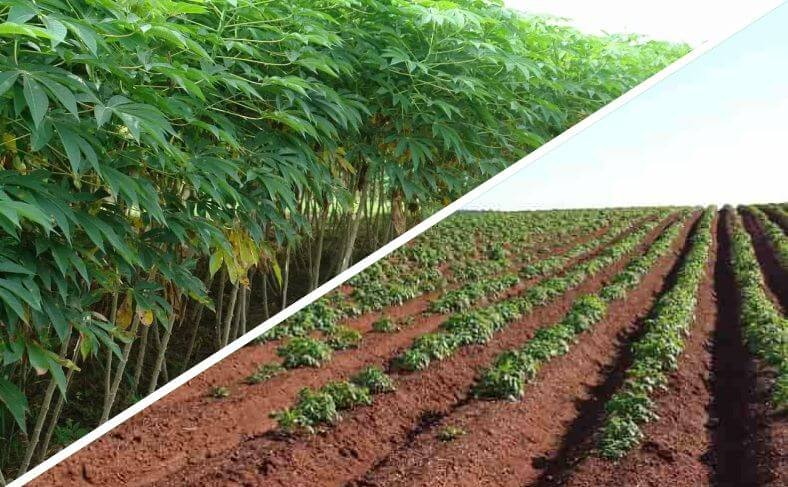- This topic is empty.
- PenulisTulisan-tulisan
- April 10, 2025 pada 8:57 am #625698

Cassava is one of the most widely cultivated root crops in tropical regions due to its resilience and economic value. However, as global demand for cassava continues to grow, the need for sustainable cassava farming practices for increased yield and soil health becomes more urgent.
Farmers are now turning toward environmentally responsible methods to not only boost production but also ensure that soil resources remain fertile for future generations. This approach helps in maintaining a balance between productivity and environmental conservation.
1. Organic Soil Enrichment Techniques
One of the most effective ways to promote sustainability in cassava farming is by using organic soil enrichment techniques. These methods include the application of compost, green manure, and animal waste to increase the organic matter content of the soil.
This, in turn, improves soil structure, boosts microbial activity, and enhances nutrient availability. Unlike chemical fertilizers, organic inputs are slow-releasing and help maintain the long-term fertility of the land. Improved soil health also leads to stronger, healthier cassava plants that are more resistant to diseases and pests.
2. Crop Rotation And Intercropping Systems
Rotating cassava with legumes, cereals, or vegetables is a key sustainable practice that helps in breaking pest and disease cycles. Crop rotation reduces the pressure on the soil by allowing different crops to use varying nutrients, thereby preventing nutrient depletion.
Intercropping cassava with nitrogen-fixing plants like cowpeas or groundnuts can significantly improve soil fertility while also offering additional food or income sources for farmers. These systems create a diverse farm ecosystem that fosters resilience and boosts productivity in the long run.
3. Use Of Disease-Resistant And High-Yielding Varieties
The adoption of improved cassava varieties is vital for sustainable farming. Disease-resistant and high-yielding cassava strains not only reduce the need for chemical inputs but also ensure a more consistent harvest. These varieties are often developed through research and breeding programs aimed at increasing resistance to threats like cassava mosaic disease and cassava brown streak.
Utilizing such varieties enhances overall farm efficiency and supports the goal of higher yields without compromising environmental health.
4. Water Conservation And Irrigation Management
Cassava is known for its drought tolerance, but efficient water management is still crucial in regions with prolonged dry spells. Sustainable irrigation practices like drip irrigation or the use of water-harvesting systems can ensure that cassava receives adequate moisture without wasting water.
These methods help maintain soil structure and prevent erosion, which is common with excessive watering. Additionally, proper irrigation timing ensures that the plant’s critical growth stages receive the necessary hydration, contributing to healthier and more productive crops.
5. Minimal Tillage And Erosion Control
Excessive tillage can lead to soil compaction, erosion, and the breakdown of beneficial soil organisms. By practicing minimal or no-tillage farming, cassava growers can preserve soil integrity and improve moisture retention.
Techniques such as mulching and the planting of cover crops help protect the soil surface from wind and water erosion while adding organic matter back into the soil.
These conservation practices are essential for maintaining the land’s long-term productivity and ecological balance.
As climate change and land degradation continue to challenge food security, adopting sustainable cassava farming practices for increased yield and soil health is no longer optional—it is essential. From enriching the soil organically to managing water wisely and rotating crops, these methods empower farmers to produce more while protecting the earth.
Sustainable farming is not just about what is grown, but how it is grown, and when it comes to cassava, the future depends on responsible choices made today.
- PenulisTulisan-tulisan
- Anda harus log masuk untuk membalas topik ini.

